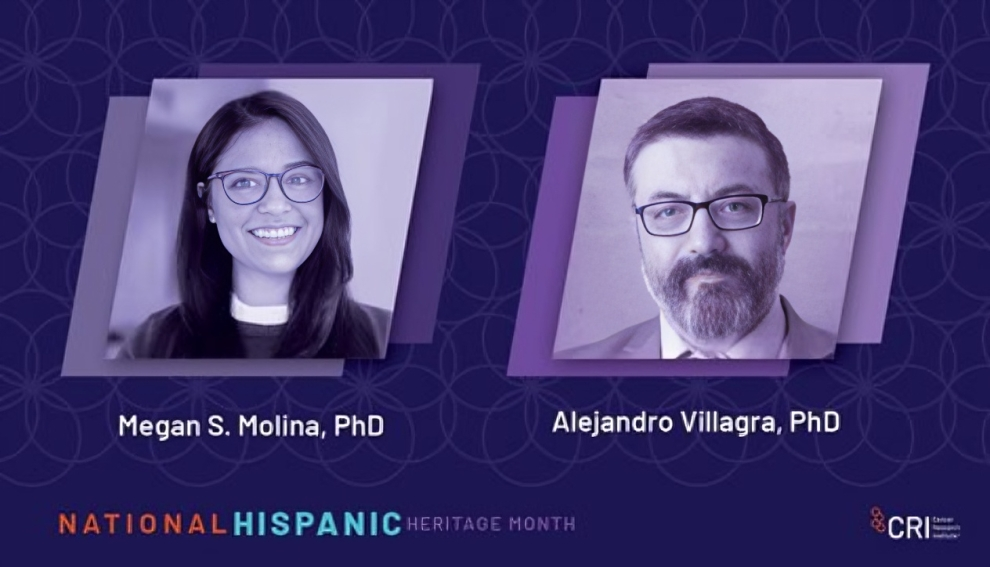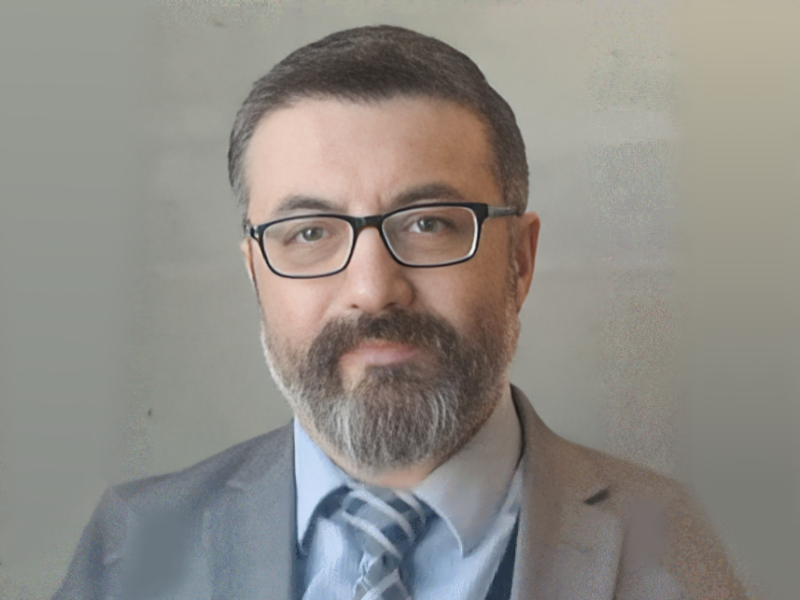
How 2 CRI Scientists Fight Cancer by Mimicking Infection and Characterizing Molecular Mechanisms in Immune Cells
Immunotherapy harnesses the power of the immune system to target cancer with precision.
Approved by the FDA for 29 types of cancer, this breakthrough approach is rapidly advancing thanks to the Cancer Research Institute (CRI) and CRI-funded scientists. CRI not only accelerates cancer research but also champions scientific diversity through initiatives like the CRI Irvington Postdoctoral Fellowship to Promote Racial Diversity, supporting underrepresented communities. We also expand access with our annual Spanish-language immunotherapy summit and a fully accessible Spanish website.
During National Hispanic Heritage Month, CRI is proud to highlight the perspectives and achievements of Hispanic scientists’ potentially life-saving work that can accelerate progress for countless cancer patients. CRI-funded scientists’ areas of research vary—Alejandro Villagra, PhD, associate professor of oncology at Georgetown University and CRI CLIP Investigator, conducts research on melanoma to categorize the molecular mechanisms involved in controlling the phenotype and function of immune cells. Megan Molina, PhD, senior fellow in the Oberst Lab at the University of Washington and CRI-Bristol Myers Squibb Postdoctoral Fellow, seeks to pierce solid tumors by imitating infection. Dr. Molina is supported by the CRI Irvington Postdoctoral Fellowship to Promote Racial Diversity.
- Alejandro Villagra
An associate professor of oncology at Georgetown University and a CRI CLIP Investigator, studies the molecular mechanisms that control immune cell behavior in melanoma. His work leverages his expertise in epigenetics to enhance the immune response against tumors, particularly through the reprogramming of macrophages. His recent research demonstrates promising strategies for improving cancer therapies. Dr. Villagra also emphasizes the importance of diverse representation in research, advocating for the involvement of underrepresented communities in the fight against cancer.

- Megan Molina
CRI-Bristol Myers Squibb Postdoctoral Fellow at the University of Washington. Her research focuses on harnessing the immune system to combat solid tumors by mimicking infection. One of the major challenges she addresses is the immunosuppressive environment within tumors, which often leads to immune cell exhaustion. Dr. Molina is developing tumor-targeting T cells that can effectively navigate and activate within these hostile environments. Additionally, she is committed to promoting diversity in science, supported by the CRI Irvington Postdoctoral Fellowship to Promote Racial Diversity.

For more posts like this, visit oncodaily.com
-
Challenging the Status Quo in Colorectal Cancer 2024
December 6-8, 2024
-
ESMO 2024 Congress
September 13-17, 2024
-
ASCO Annual Meeting
May 30 - June 4, 2024
-
Yvonne Award 2024
May 31, 2024
-
OncoThon 2024, Online
Feb. 15, 2024
-
Global Summit on War & Cancer 2023, Online
Dec. 14-16, 2023
